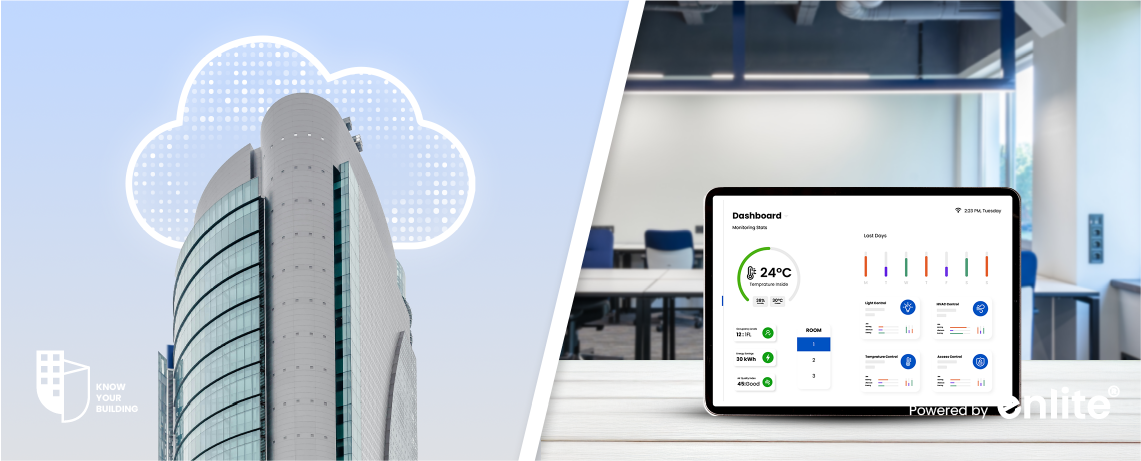In the age of smart technology, Artificial Intelligence (AI) is revolutionizing Building Management Systems (BMS), making them more efficient, intuitive, and sustainable. By integrating AI, BMS solutions are no longer limited to monitoring and controlling building functions—they are evolving into intelligent ecosystems capable of predictive and adaptive decision-making.
Understanding AI in BMS
Artificial Intelligence in BMS involves the use of algorithms, machine learning, and data analytics to enhance the management of building operations. AI processes vast amounts of data collected from IoT sensors, devices, and building systems to provide actionable insights, automate routine tasks, and optimize energy and resource utilization.
How AI Transforms Building Management Systems
1. Predictive Maintenance
AI enables predictive maintenance by analyzing equipment data to identify signs of wear or potential failures before they occur. This reduces downtime, lowers repair costs, and extends the life of building systems. For example, AI can monitor HVAC performance and schedule timely interventions, preventing costly disruptions.
2. Energy Efficiency Optimization
One of the most significant advantages of AI in BMS is its ability to optimize energy consumption. By learning from historical usage patterns and real-time data, AI-powered BMS can:
- Automatically adjust lighting and temperature based on occupancy.
- Predict energy demand and reduce wastage during low usage periods.
- Integrate with renewable energy systems to maximize efficiency.
3. Enhanced Security
AI enhances building security by integrating with access control systems and surveillance. Features include:
- Real-time monitoring and anomaly detection to identify unusual activities.
- Automated alerts and actions, such as locking doors or notifying security personnel.
- Facial recognition and biometrics for secure and seamless access management.
4. Improved Occupant Comfort
AI-driven BMS solutions prioritize occupant well-being by tailoring indoor environments to individual preferences. For example:
- Smart thermostats and lighting systems that adapt to user habits.
- Real-time air quality monitoring and adjustments to maintain healthy conditions.
5. Data-Driven Decision Making
AI transforms raw data into actionable insights, empowering facility managers to make informed decisions. These insights help in:
- Identifying inefficiencies and improving resource allocation.
- Planning long-term maintenance and sustainability strategies.
- Benchmarking performance across multiple buildings.
Real-World Applications of AI in BMS
1. Smart Offices
AI-powered BMS in office spaces optimize energy use, improve employee comfort, and ensure seamless operations. For instance, AI can automate meeting room bookings and adjust conditions based on the number of occupants.
2. Commercial Complexes
In large commercial buildings, AI integrates with various systems to streamline operations. From predictive maintenance to real-time energy management, AI enhances both efficiency and tenant satisfaction.
3. Healthcare Facilities
Hospitals and clinics benefit from AI in BMS by maintaining critical environmental conditions. AI ensures optimal air quality, temperature, and lighting, which are essential for patient care and staff efficiency.
4. Hospitality Sector
Hotels use AI-driven BMS to create personalized guest experiences while reducing operational costs. AI can adjust room settings automatically based on guest preferences and occupancy patterns.
The Future of AI in BMS
As technology advances, the role of AI in BMS will continue to grow. Innovations on the horizon include:
- Digital Twins: AI-driven virtual replicas of buildings for real-time monitoring and simulation.
- Advanced Predictive Analytics: Enhanced algorithms for even more accurate predictions and resource optimization.
- AI-Powered Sustainability: Deeper integration with renewable energy sources and carbon management systems.
Conclusion
AI is redefining the potential of Building Management Systems, transforming them into intelligent frameworks that optimize operations, reduce costs, and enhance occupant experiences. By integrating AI into BMS, businesses can create smarter, more sustainable buildings that adapt to ever-changing needs.
At [Your Company Name], we specialize in climate tech solutions, including AI-powered, cloud-native wireless BMS systems designed to revolutionize the way buildings operate. Contact us today to learn how AI can elevate your building management strategy.














